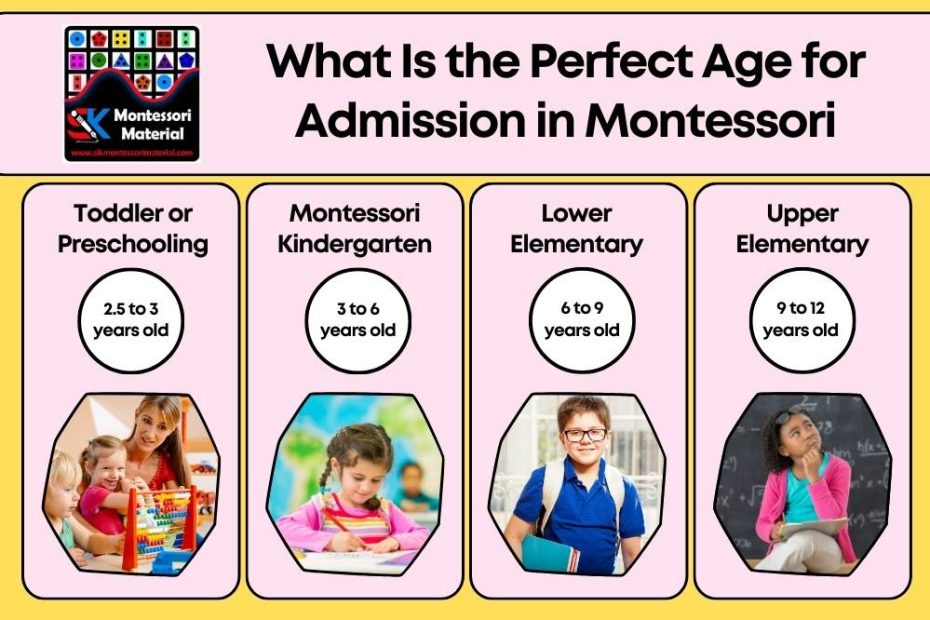Montessori education is renowned for its child-centric approach, teaching independence, developing creativity, and a love for learning from an early age. One common question parents often ponder is, “What is the perfect age for admission in Montessori schooling?” In this article, we’ll explore the principles behind Montessori education and offer insights to help parents make informed decisions regarding the ideal age for their child’s entry into this unique educational system.
Understanding Montessori Philosophy:
Dr. Maria Montessori, the founder of the Montessori method, emphasized the importance of a child’s formative years in developing a lifelong love for learning. Montessori education is designed to meet the developmental needs of children at each stage, fostering an environment that allows them to explore, discover, and learn at their own pace.
The Sensitive Periods:
One key concept in Montessori philosophy is the idea of “sensitive periods,” which are critical windows of opportunity for learning specific skills. These periods vary for each child but typically occur during the early years of life. By exposing children to the Montessori environment during these sensitive periods, they can benefit greatly from the tailored activities and materials that promote their natural curiosity.
Ideal Age Range:
While there isn’t a one-size-fits-all answer to the perfect age for Montessori schooling, most Montessori programs accept children as young as 2.5 to 3 years old. This age range aligns with the sensitive periods for language development, motor skills, and social interactions. At this stage, children are eager to explore their surroundings and develop a sense of independence.
Benefits of Early Montessori Education:
Developing Independence: Montessori classrooms are designed to encourage self-directed learning, helping children develop independence and a sense of responsibility from a young age.
- Love for Learning: By allowing children to explore subjects at their own pace and based on their interests, Montessori education fosters a lifelong love for learning.
- Social Skills: Montessori classrooms often include mixed-age groups, promoting social interactions and cooperation. Children learn from each other and develop essential social skills.
- Critical Thinking: The Montessori approach emphasizes hands-on, experiential learning, nurturing critical thinking skills that serve children well throughout their academic journey.
Considerations for Parents:
When deciding on the perfect age for Montessori schooling, parents should consider their child’s individual temperament, maturity, and developmental readiness. Observing how a child interacts with their environment and peers can provide valuable insights into their readiness for a Montessori setting.
Conclusion:
In the world of Montessori education, there isn’t a rigid age requirement, as children develop at their own pace. The ideal age for admission into Montessori schooling is a flexible concept that depends on the unique characteristics of each child. By understanding Montessori philosophy, sensitive periods, and the benefits of early education, parents can make informed decisions to provide their children with a solid foundation for a lifelong love of learning.

